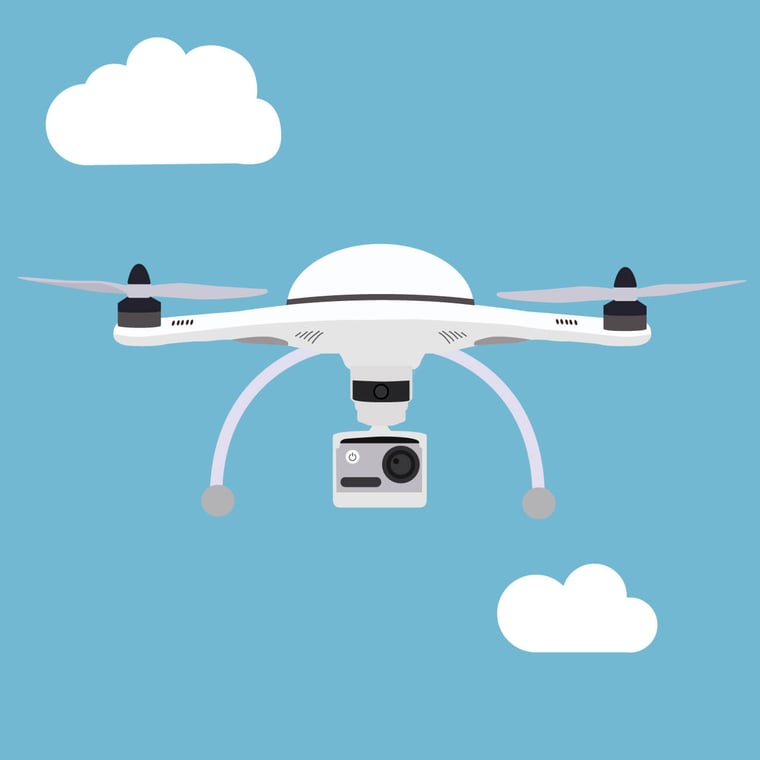Top Real Estate Technology Trends for 2021
Real estate tech has changed in 2021. Check out this guide to see top real estate tech for 2021 and all the current real estate technology trends and news.
Surveys show that the COVID-19 pandemic has accelerated the adoption of digital technologies by several years. It remains to be seen which real estate technologies are temporary and which are long-term, but many are expected to be here for the long haul.
To stay competitive in this new business and economic environment, new strategies and practices must be adopted. Technology continues to transform the way real estate professionals conduct business and connect with clients. Not surprisingly, 95% of people look for properties online. Today, we are in an era of showing homes to clients on the other side of the world through virtual tours and more and more buyers willing to buy properties without physically stepping foot on the property.
To help you stay up to date on new and emerging real estate technology trends, here is a guide to see top real estate tech for 2021. Real estate agents are quickly adopting new technology as we come out of the pandemic and to better meet client demands. These real estate tech trends are expected to reshape the industry in the years ahead.
Artificial Intelligence
Real estate agents can benefit from Artificial Intelligence (AI) in many ways. One example is the adoption of chatbots. Real estate agents are using these intelligent assistants to help with client service. Chatbots can automatically answer many commonly asked questions, as well as filter prospects, and provide a higher-quality experience overall.
Beyond that, AI can help your clients receive better suggestions on homes they may be interested in, which is all based on data analyzed through AI-based algorithms. Right now, most property search sites rely on simple preferences like location and size. In the future, AI may enable sites to recommend properties based on values, preferences, and even personality traits.

Drones
COVID-19 accelerated virtual home tours, with some real estate agents turning to drones to help capture video indoors. The technological advancements of drones have made it efficient and cost-effective to take pictures and videos. Relaxed Federal Aviation Administration (FAA) rules have made it easier, too. As of August 2016, the FAA small drone rule eased restrictions on Unmanned Aerial Systems (UAS), also known as drones, for businesses by creating an FAA-issued UAS Operator Certificate. This does not require a pilot's license.
Drone tours can help highlight dramatic features, such as cathedral ceilings, floor-to-ceiling windows, or large doors that open to outdoor vistas. Additionally, waterfront properties or homes with breathtaking views are good candidates for indoor and outdoor drone photographs and video footage.
Because indoor drone tours are not commonplace (yet), it can help your listing stand out by offering unique views and a seamless walkthrough experience not available on other listings. You’ll benefit from a sense of exclusivity around a property. Even more importantly, potential buyers will feel as if they are inside the home and seeing it from angles not conveyed through conventional photography.
When vetting for an experienced drone operator, find someone experienced in maneuvering indoor space constraints. The price will vary based on property, but you can expect around $500-1,500 per drone session.

Virtual Reality
Nothing can replace an in-property visit, of course, but Virtual Reality (VR) gets potential buyers as close as they can get.
VR allows real estate agents to provide a lifelike representation of a property—far beyond only photos and descriptions. It allows buyers to have a better idea of the home’s layout and details. To gain a more comprehensive view, VR can provide deeper details about the construction—such as plumbing, electrical, or insulation—too.
Having all this detailed information upfront helps real estate agents limit the number of visits they must arrange for potential buyers. Your clients will also value being able to check out homes anywhere and at any time in the way most comfortable to them.

Internet of Things
Internet of Things (IoT), a technology we increasingly hear about in 2021, refers to smart devices or appliances that are digitally connected to the cloud and constantly send and receive information. An example is a Nest smart thermostat, which allows the property owner to regulate the house temperature remotely. Another example is a property owner having a device that allows them to shut off the water in the house remotely in case there is a leak. The ability to shut off the water before it is too late allows for proactive maintenance without human intervention.
Components or machines that include smart sensors can alert owners to potential problems and allow for predictive maintenance. Imagine a time in the future where homebuyers can download a comprehensive history of a home’s maintenance and upkeep through smart sensors or devices connected to the electric, HVAC, and plumbing systems. Not only would buyers no longer have to guess or pay for costly inspections to understand the condition of a home but they’d also have a better understanding of a home’s energy efficiency.
These reasons make it no surprise that the real estate industry is a perfect candidate for expanding IoT technology.
Electronic signature and authorization tools
After talking about IoT, VR, and AI, electronic signature and authorization tools are not groundbreaking technologies, of course, but they are important. Back in the day, jokes were aplenty about buyers signing their lives away in stacks of paper—until now.
Signing on physical paper is time-consuming, as you must physically send the documents to the client, and then to the bank and onward.
Why not consider technology like DocuSign, which allows buyers, sellers, lenders, title agents, and other parties involved in a transaction to review, revise, and approve documents? The necessary parties can digitally sign and send documents from anywhere, at any time, and on any device. This helps agents avoid stress-inducing bottlenecks and roadblocks and keep you on the path to a speedy closing.
Conclusion
Many industries are rapidly adopting new technologies, and real estate is no exception. The real estate industry will continue to push for more innovation and cutting-edge technology. By incorporating some of these new technologies on top of those offered by Radius Agent, your clients can benefit from a more engaging and immersive experience. And these sophisticated tools will help you and your listings stand out as you build your business in the booming, post-pandemic real estate world.
Radius Agent is an online brokerage focused on helping agents succeed. With Radius Agent, you keep 100% of your commissions while getting 100% support from our team.
To learn more about our brokerage:






